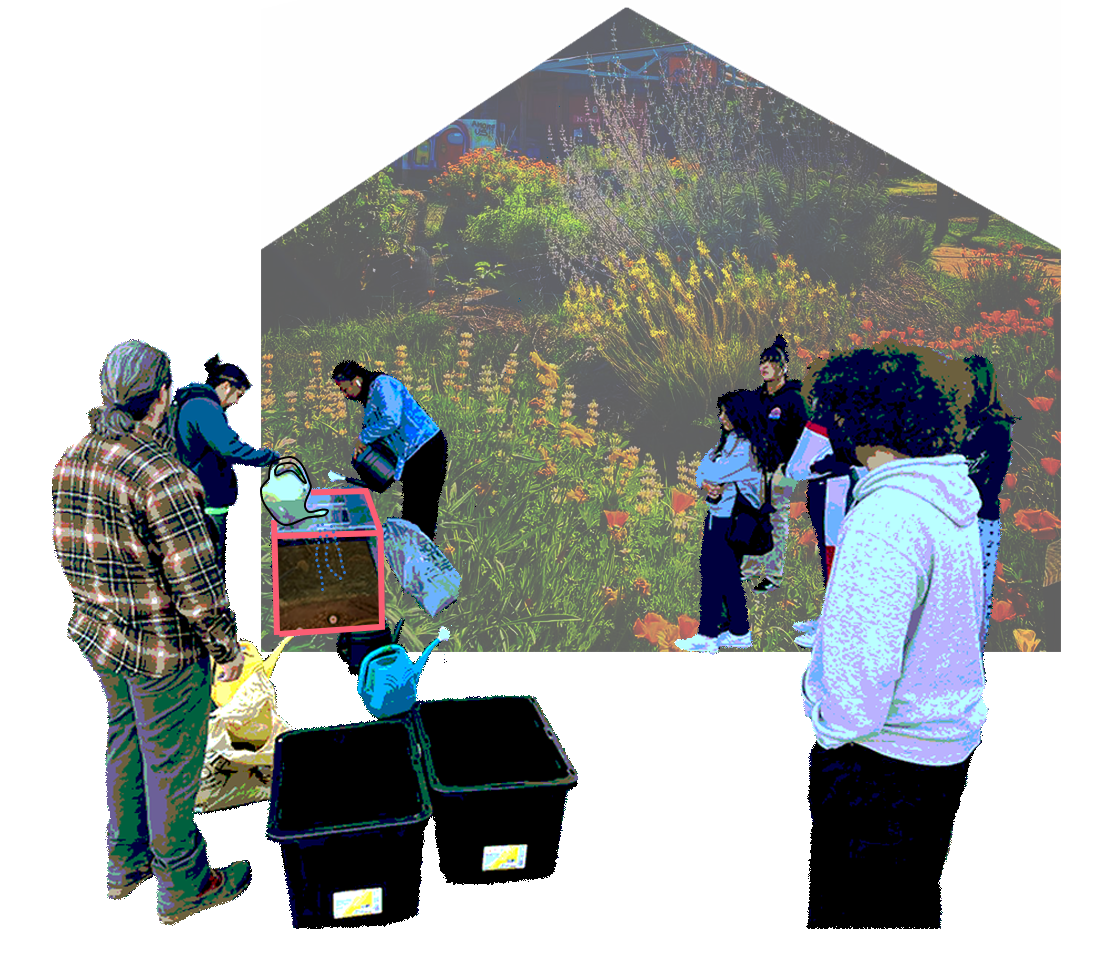
Designed by Vanessa Lee. Photo courtesy of Keta Price and Nathan Bickart.
Green Stormwater Infrastructure
by and for Communities
.
Quick Fact
What’s Green Stormwater Infrastructure?
Green Stormwater Infrastructure (GSI) is a type of urban greening Urban greening is a broad term for strategies that promote ecosystem health by introducing vegetation and natural features into urban places.
that takes advantage of the natural processes of soils and plants to manage stormwater Stormwater is rainwater that is produced by a storm.
, and also achieves many environmental and social benefits in the urban landscape. Rain gardens Rain gardens, or bioretention cells, are engineered sunken areas that manage stormwater runoff by filtering and infiltrating water, mimicking natural processes to reduce volume, delay runoff, and treat pollutants.
, rainwater harvesting systems, bioswales Bioswales, frequently situated alongside curbs and in parking lots, utilize vegetation or mulch to decelerate and purify stormwater runoff.
, and green streets and alleys are all examples of GSI.
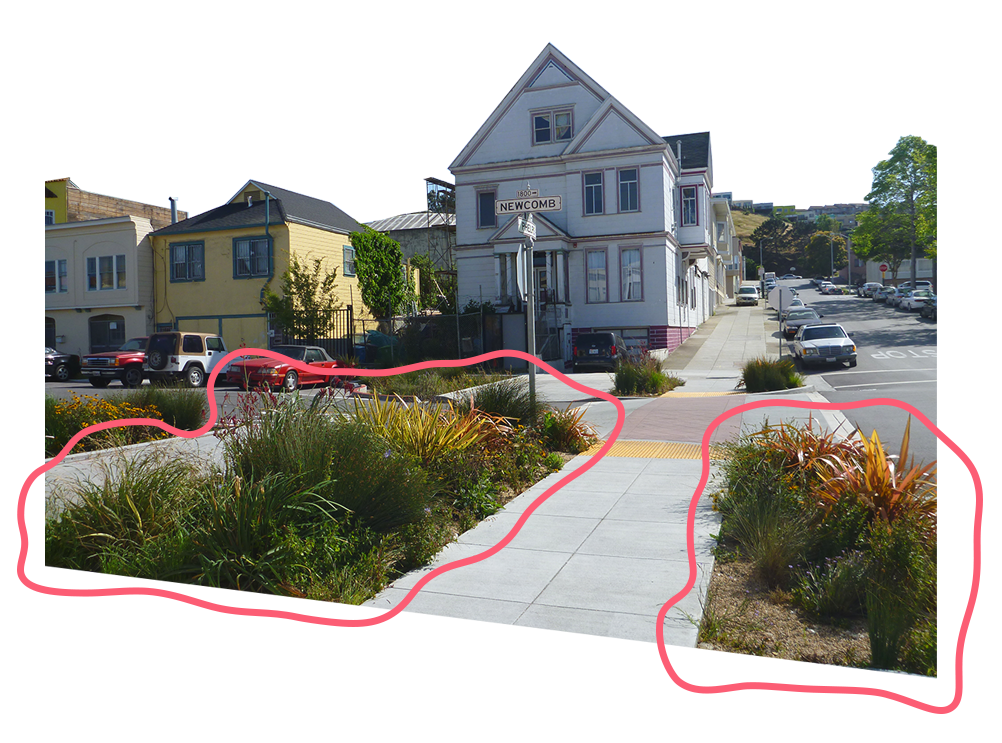
Designed by Vanessa Lee. Photo courtesy of Alicia Gilbreath.
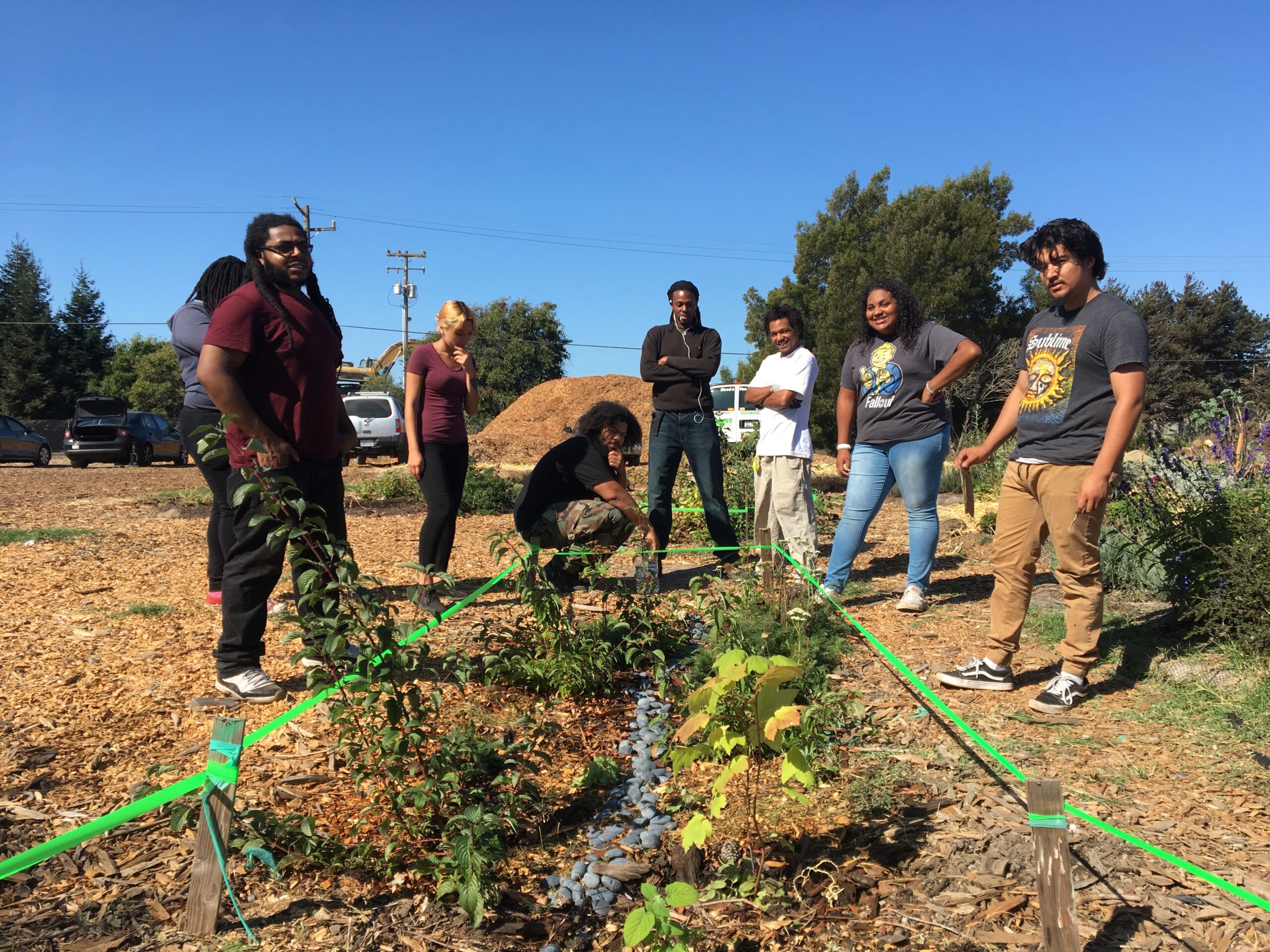
Urban Tilth staff install a bioswale in Richmond, CA. Courtesy of Nathan Bickart.
About the Project
The project aims to build the capacity of residents in East Oakland and Richmond, California, to understand and influence local water quality. Capacity building will include technical knowledge, hands-on experience, and exploration of relationships between green stormwater infrastructure (GSI), environmental justice, race, and socioeconomic status.
Currently, the project is creating a curriculum A set of educational content designed to guide learning, in this case focused on stormwater management.
to engage underserved communities in GSI design, invite them to engage with the project team in a community-driven GSI planning process, and build community capacity to drive future planning efforts. Communities will be invited to experience exciting visualization and GSI planning tools (e.g., augmented reality, GreenPlan-IT), as well as groundwork and monitoring at local GSI installations.
Event Spotlights
Reimagine The Overpass — A Community Design Session @ Dag, Oakland
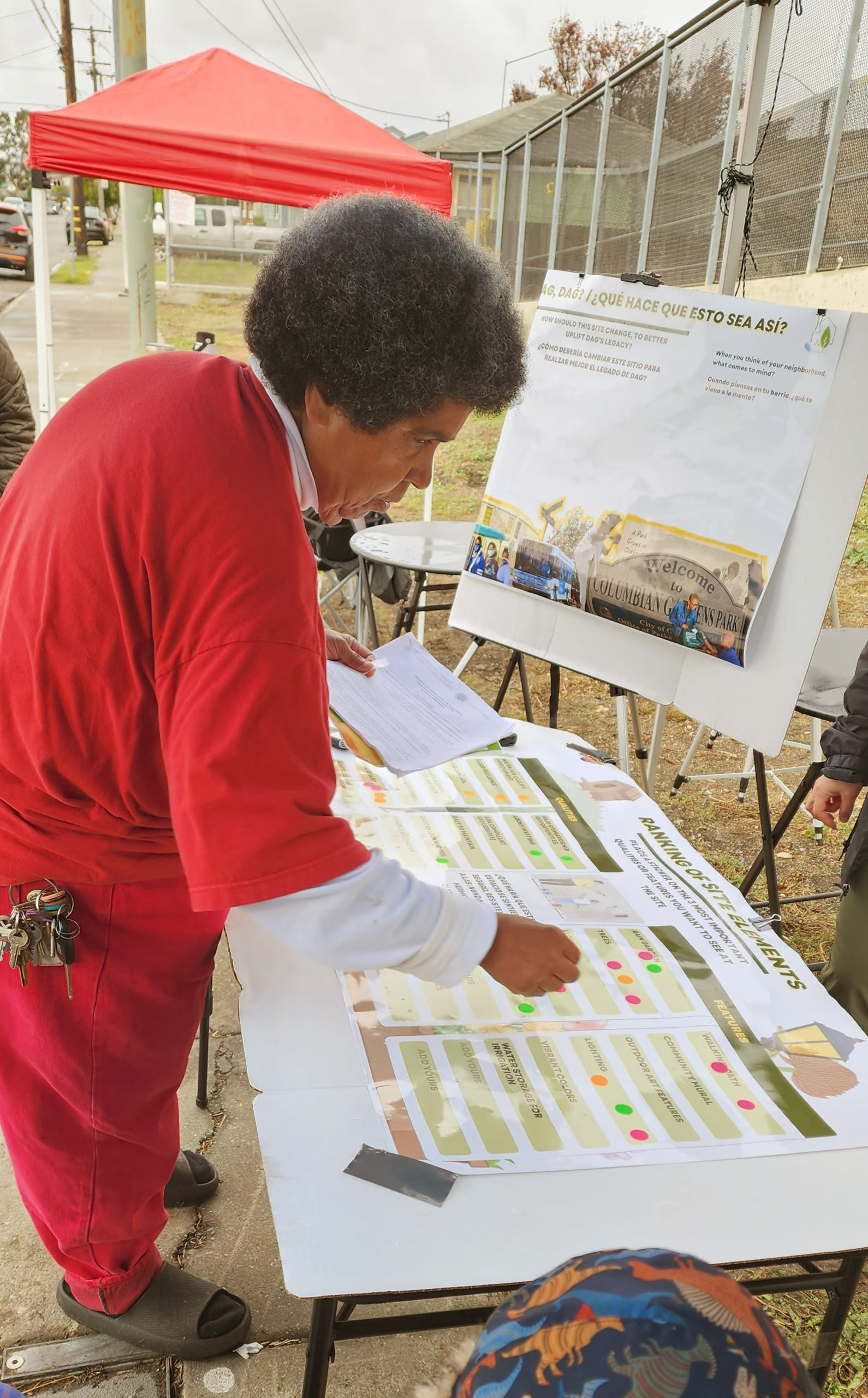
Co-design sessions are creating a greener, safer, more vibrant community space at The Overpass in Dag (Coral Rd & Sextus Rd)
Richmond Community Greening and Resilience Workshop Series @ the Iron Triangle
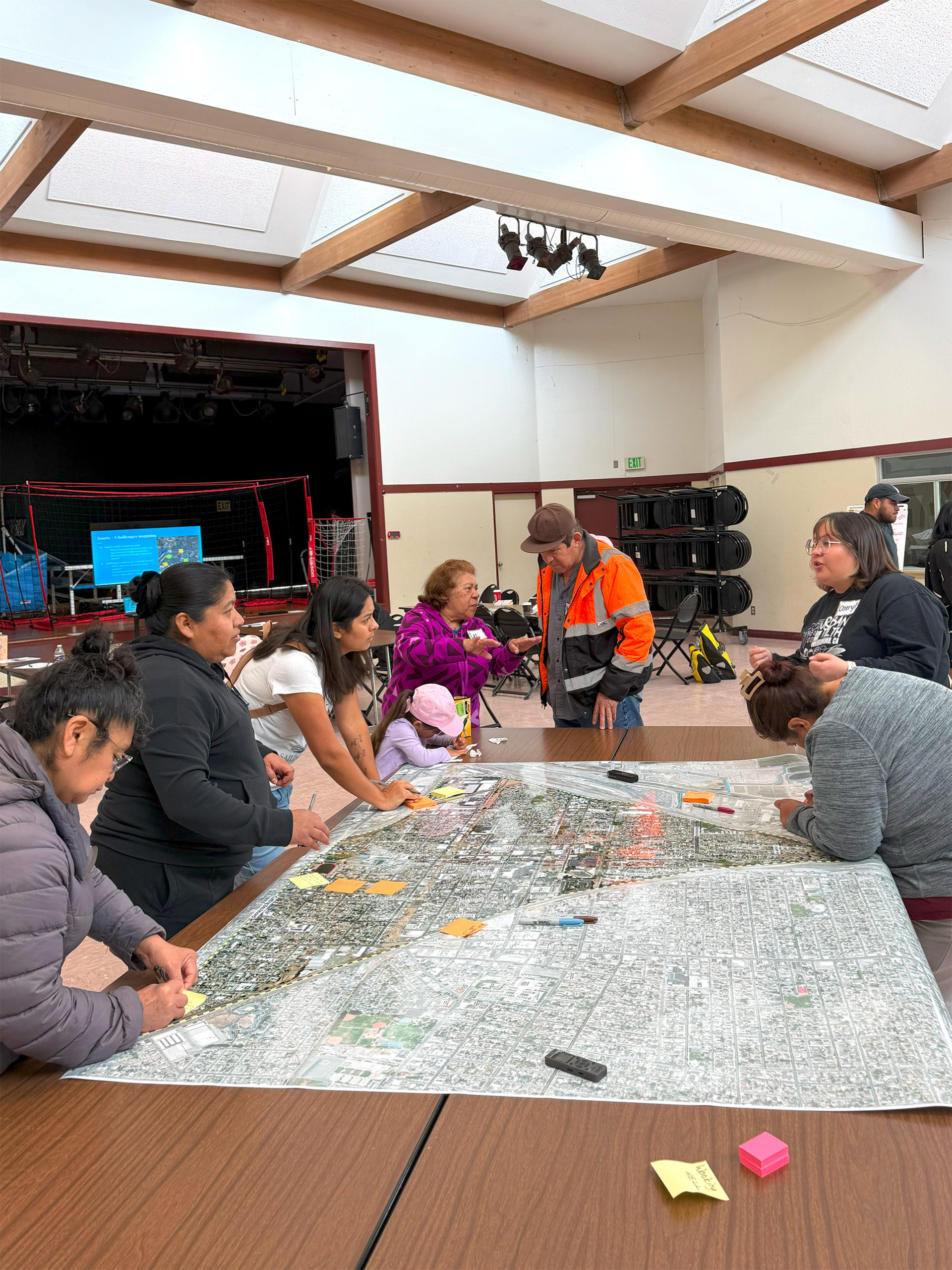
A series of workshops took place between March and July 2025 to design green spaces and identify maintenance needs in the Iron Triangle neighborhood
Project Team
Meet our diverse team, comprising Urban Tilth, Hood Planning Group, San Francisco Estuary Institute, San Francisco Estuary Partnership, and the University of California, Berkeley (UCB), covering expertise ranging from community advocacy, urban planning and design, environmental science, to academic research.

Planting at Richmond Greenway. Courtesy of Tony Hale.